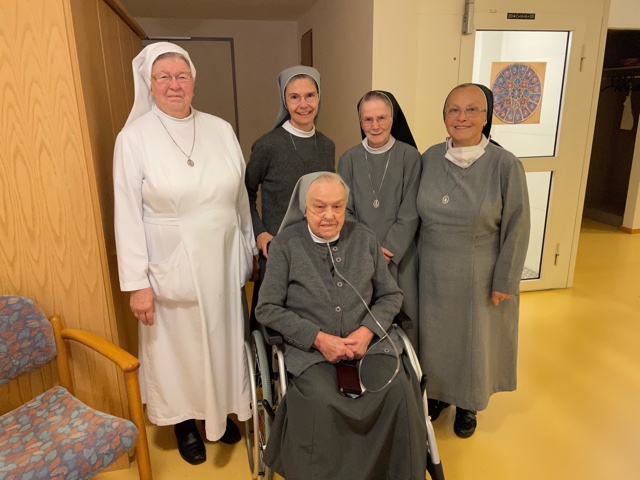Memories of German history
Do you remember? The occupations of the German embassies in Prague and Warsaw in 1989, the opening of the border between Austria and Hungary, the Monday demonstrations in Leipzig and other places, the first opening of the Wall on November 9, 1989 and finally the Day of German Unity on October 3, 1990. Back then, they were eventful and eventful weeks that we all experienced with excitement. And many feelings accompanied us: worry and great fear, but also hope and joy. And when the unification treaty was finally signed, quite a few also folded their hands and thanked God. German unity was not just the work of people, it was also felt as a gift, a gift from above, from God.
There are two extreme positions that could be associated with this topic of “gift unity”, and which I would like to briefly suggest here.
Put your hands in your lap
On the one hand, one might think: if unity is a gift, then I cannot and do not need to do anything. Then I can put my hands in my lap and wait for unity to come from God. I would like to warn against this assumption. I am sure that German unity would never have come about without the efforts of many on both sides: politicians, scientists, representatives of the churches, artists and many ordinary citizens.
Furthermore, I am not only thinking of German unity. Christians are also divided into different denominations. And I am grateful and happy that many Christians do not put their hands in their laps and wait for God to make a difference, but rather that they cooperate and approach one another, even if they know that unity is ultimately a gift.
Ordered or forced unity
Unity cannot be made, let alone order. This is shown by the recent history of several European countries. The Soviet Union quickly fell apart during the time of glasnost and peristroika. In the former Yugoslavia, the 7 republics immediately declared their independence after Tito’s death. And even in countries like Great Britain or Spain, unity is sometimes at stake. A prescribed or even enforced unit seldom lasts.
So reality lies in the middle. Unity is a gift, but I can do a lot to ensure that this gift can become and remain a reality.
Appreciation as a breeding ground for unity
Unity needs another breeding ground for it to grow. This breeding ground is mutual respect. There are wonderful examples of this as well. Pope Paul VI met the Patriarch Athenagoras in 1964 and thus took an important step towards bringing the Orthodox and Catholic Churches closer together. And with his visit to Warsaw in 1970, Willy Brand certainly also set a milestone on the way to German unity. Of course, you cannot do the unity with such activities. With certainty, however, one can create the conditions on which the unity can then grow. Receiving gifts and doing something for them are not mutually exclusive.
Resignation and accommodating
The mutual appreciation that I show for the other is certainly a great gift that contributes a lot to unity. But there are other gifts that don’t have much to do with giving at first.
Even as a child I learned that I had to forego some things in the family and make compromises. I experienced that with my parents, then with my siblings and also with me. In the beginning, this waiver was certainly not voluntary, but rather forced. But later I was able to experience that this kindness and renunciation also contributed to the fact that we grew together as a family and that we are still in good contact with one another today.
Compromise and renunciation as our parishes grow together are of very topical importance. Here, a waiver is often necessary, e.g. when choosing a church as a parish church or when redistributing financial resources. If there is only anxiety that I don’t miss out, unity can never grow. Only when the common whole becomes more important to me than my own interests can a parish arise.
Gratitude: maintaining unity
You put a bouquet of flowers in the water to keep the flowers fresh for a long time. I go out carefully with a given bike so that I can ride it for a long time. Gifts want to be cared for. This is certainly the most beautiful way of appreciating gifts and thanking the giver of the gifts. That applies to the German unity that was given to us 30 years ago. This also applies to the unity of Christians, which we continue to strive for. And that certainly also applies to the unity in a convent, a religious community, a presbytery, a congregation.
Prelate Dr. Stefan Dybowski
7th, October 2021 monthly lecture St. Augustinus Monastery, Berlin-Lankwitz

